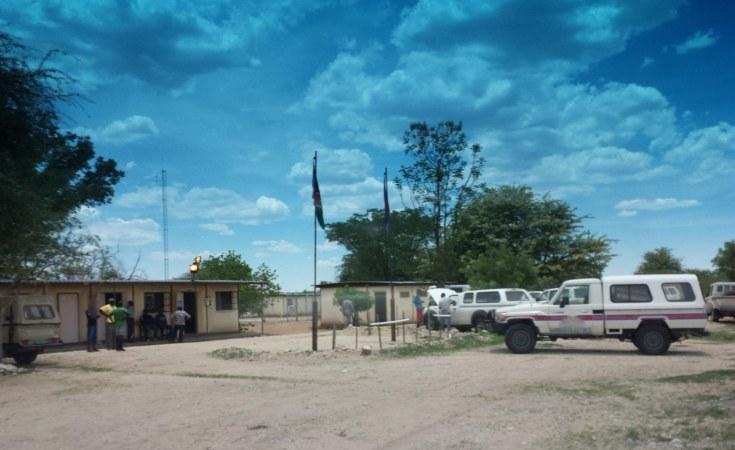
Africa-Press – Botswana. One of the main initiatives of the African Union’s Agenda 2063, which aims to remove barriers to Africans’ freedom of movement, employment, and residence on their continent, is the free mobility of Africans within it.
With the intention of encouraging the Member States to issue visas to improve the free movement of African nationals on the continent, the project tries to change Africa’s laws, which remain largely restrictive on the movement of people despite political vows to remove borders.
Nationals of Namibia and Botswana will no longer require passports to travel between the two nations.
The neighbouring nations of Botswana and Namibia have cordial relations and collaborate on economic growth.
Last year, Namibia and Botswana agreed to upgrade their cooperation from bilateral frameworks such as the Joint Permanent Commission of Cooperation (JPCC) and the Joint Permanent Commission on Defence and Security (JPCDS).
Once fully embraced by all Member States, the free movement of people within Africa is expected to have many important positive effects, including an increase in intra-African trade, commerce, and tourism; easier labour mobility; knowledge and skill sharing within Africa; the promotion of pan-African identity, social integration, and tourism; an improvement in trans-border infrastructure and shared development; the encouragement of an all-encompassing approach to border management; and the promotion of the rule of law, human rights, and shared development
Nationals of Namibia and Botswana will no longer require passports to travel between the two nations after the presidents of those nations decided to open their borders to one another.
The declaration was made at the opening ceremony of the Botswana-Namibia binational commission at the Gaborone International Convention Center by Namibian President Hage Geingob.
He called on senior officials to fast-track the implementation of the use of IDs as travel documents between the two countries, according to the Namibian.
Namibia and Botswana once had a border dispute in 1992 because of the uninhabited Sedudu island. The island is situated in the Cuando River, which forms part of the international border between the two nations. In December 1999, the World Court’s judges declared that Botswana was the rightful owner of the island.
Southern African Development Community (SADC) the Member States in 1996 adopted the SADC Protocol on Transport, Communication, and Meteorology that will see each Member State recognize driving licenses issued according to the agreed SADC codes and format by other member states or an international driving permit as corresponding and equal to its own.
“Our two countries share not only a common border but also a common people and heritage. A symbiotic and interdependent relationship exists along our common borders. Our relationship is coming from generation to generation, we have people on both sides of the country. I know how many Namibians are in Botswana, speaking Herrero, Nama, and Afrikaans here in Botswana even though Afrikaans is a foreign language. When my brother (Botswana President Mokgweetsi Masisi) is saying we are tired of these historical boundaries, he means it and is enthusiastic. I agree and we are going to abolish passports, we will use National Identity cards, and we will sign that agreement today as proof that we walk the talk,” said President Geingob.
Relations between Namibia and Botswana
The neighbouring nations of Botswana and Namibia have cordial relations and collaborate on economic growth. In Windhoek, Botswana has a sizable representation. In September 1966, Botswana declared its independence from Great Britain.
After the Namibian War of Independence, Namibia won its independence from South Africa in 1990.
Last year, Namibia and Botswana agreed to upgrade their cooperation from bilateral frameworks such as the Joint Permanent Commission of Cooperation (JPCC) and the Joint Permanent Commission on Defence and Security (JPCDS).
Namibia and Botswana last month stopped agricultural imports from South Africa, namely tomatoes, carrots, beetroot, potatoes, cabbage, lettuce, garlic, onions, ginger, turmeric, chilli peppers, butternut, watermelons, sweet peppers, green mealies, and fresh herbs. This was to protect their local agriculture industries from outside competition.
According to figures from the Observatory of Economic Complexity (OEC), a global data visualization tool for international trade, as of 2020, Namibian exports to Botswana were worth an estimated R8.466 billion (about $498 million).
The main products that Namibia exported to Botswana were diamonds ($299m), refined petroleum ($131m), and electricity ($33.1m). During the last 20 years, the exports of Namibia to Botswana have increased at an annualized rate of 23 per cent, from R134.47 million in 2000 to over R8 billion in 2020.
The main products that Botswana exported to Namibia were diamonds, insulated wire, and coal briquettes. During the last 20 years, the exports of Botswana to Namibia have increased at an annualized rate of 12.9 per cent, from R96.9 million in 2000 to R1.1 billion.According to an article by Bulawayo24 published June 17, 2022, the development is in line with SADC’s Protocol on Transport, Communication, and Meteorology, which was adopted in 1996.
According to Article 6.10 of the SADC Protocol on Transport, Communication, and Meteorology, “a member state shall issue, upon successful completion of a test of a certain licence code, a driving licence for the categories to be agreed upon while also adopting a harmonized format for driving licences.”
“Each member state shall recognize driving licences issued according to the agreed SADC codes and format by other member states or an international driving permit as corresponding and equal to its own.
“A licence issued in one member state shall be valid for the driving of a vehicle in respect of which it has been issued in any other member state.”
Also, according to the article: “Member states shall harmonize learner’s licence testing and codes with a view to encouraging the mutual recognition of each other’s learner’s licences, and the provisions of the article shall also apply to professional driving permits or other documentation issued for the same purpose while member states shall require drivers to carry their driving licences and professional permits, as the case may be, at all times during a journey on a public road.”
For More News And Analysis About Botswana Follow Africa-Press





